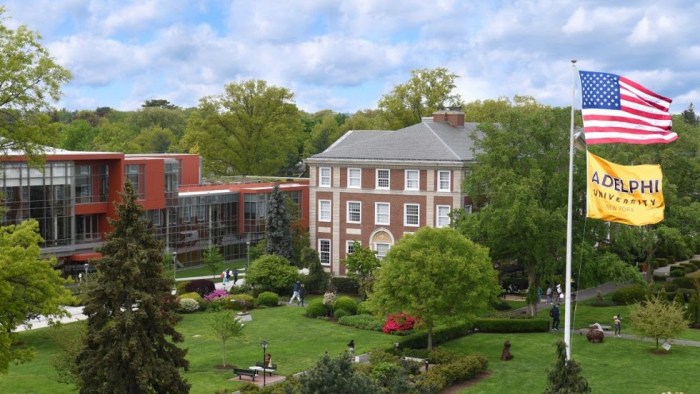Village’s legal fees north of $500,000
Village of Garden City officials recently discussed what Village Auditor James Olivo called an extraordinarily litigious 2014-15 year for the village earlier last month at a village board meeting.
With more than $475,000 in legal expenses paid on the most recent meeting’s agenda, Olivo said the law budget was expected to be $683,000, and before that evening, the legal expenses to date were more nearly $500,000. The remaining balance of $269,000 has been used to pay the legal bills, as well as a supplemental amount of money coming out of the village’s contingent account.
According to the village officials, transfer of funds included $88,515 from contingent to litigation due to the fact that litigation expenditures are running “far beyond budget projections,” as well as $12,500 from contingent to law for expenses associated with various legal matters, including valuations necessary for zoning/redevelopment.
“We have two quarterly billings to go with this, and it’s a major matter of concern for the board,” Olivo said.
The village’s total law budget for 2014-15 was slightly over $1 million, as the village earmarked $400,000 as a litigation fee for the appeal of their ACORN/MHANY case, in addition to the $683,000 budgeted amount.
There was also the transfer of $189,098.55 in funds paid to Jones Day, a Manhattan-based law firm handling the village’s ACORN/MHANY appeal, which the village stated is an insured matter and reimbursement is expected. Funds are available in the village’s insurance reserve fund to cover the expense.
“At the time, we were in discussions with insurance carriers on whether they were going to reimburse any of those fees, which they have subsequently started to do,” trustee Richard Silver said. “They are paying slowly, and they’re not paying in full; our law firm has been patient with us, but understandably as they near the end of their fiscal year, they’ve asked us to pay what we owe them, and for us to wait for the reimbursement for our carrier.”
Deputy Mayor Nicholas Episcopia said that the ACORN/MHANY case has a cap on its appellate court fees.
The ACORN/MHANY case stemmed from a 2004 plan by former County Executive Thomas Suozzi to sell developers the 25-acre site of the Department of Social Services office. Suozzi requested the zoning be changed to allow 311 units of multi-family housing. Negative reaction from the public prompted village officials to limit the zoning to 150 town houses, 90 single-family homes, or a combination of the two with each option allowing for up to 36 multifamily units.
When asked by a village resident if an end was in sight for the legal fees, Village of Garden City Mayor John Watras said, “We hope so.”
Trustee Brian Daughney then added, “We’re not going to stop the appeal, that would be an unwise move. We have normal reoccurring litigation and some litigation that pops up.”
Other expense items on the December meeting agenda were $13,355 to Reynolds, Caronia, Gianella & LaPinta for services rendered from Nov. 1-30 with respect to legal issues as Fair Housing Compliance Officer with MHANY Management Inc., and the ACORN litigation case, as well as a transfer of funds for $11,495 from contingent to law.
Quarterly billing of $101,747.48 to Cullen and Dykman was also approved on the agenda, as well as $52,981 to Bond, Schoeneck & King, PLLC with respect to legal services for general labor matters.
In trustee Richard Silver’s treasurer’s report, he said the village has begun to see enhancements to the treasurer’s report for the first time that back out items such as capital, library and insurance—allowing the village to observe how they’re doing on the operating budget.
“If we look at just the operating accounts, we’re at 46.5 percent of budget, and last year we were at 47 percent—the revenues are the same,” Silver said. “However when we start to look at things such as overtime, the overall overtime line is about 56 percent of budget halfway through the year.”
Silver added that many of the departments find their overtime concentrated in seasonal periods, such as the village’s parks department having spent 90 percent of its overtime budget, which he attributed to seasonality.
“I’m reporting all of this because I think we’re on the verge of adding enhancements to our reporting that for the first time, are going to give us a more seasonal picture and ability to look at how we’re doing on a month-to-month basis,” Silver said.
According to Silver, Olivo, working alongside Village Administrator Ralph Suozzi and a local consultant, Irene Wu, a seasonal reporting mechanism has been developed, which Silver said he hopes to get his first look at within a week.
“I hope we’ll be able to start to get that around the board and the executive team,” Silver said. “With a robust ‘seasonalized’ budget, I’m encouraged we’ll be moving in the right direction.”
Olivo echoed Silver’s sentiments, saying that positive progress has been made with the 2015-16 budget process with the involvement of Wu, as well as Adelphi University interns.
Suozzi said the concept behind seasonal reporting was to visualize municipal data, and reports were set for a presentation to the village board on Thursday, Jan. 8.
“We know we pick up leaves, burn fuel in police cars, and need salaries, benefits and all the other expenses such as materials and phones. We have to take a look at how we are doing, as we are halfway through the fiscal year with November closed,” Suozzi said.


























